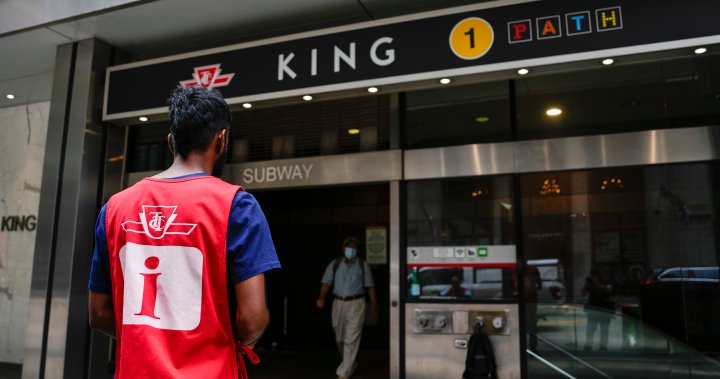Paragraph 1: Toronto’s Subway System Faces Increased Weekend Closures in 2025
The Toronto Transit Commission (TTC) has announced a significant increase in planned full weekend closures for its subway system in 2025. These closures are essential for maintaining the aging infrastructure, integrating new technologies, and facilitating ongoing expansion projects. Commuters can expect disruptions to their regular travel routines as the TTC balances the need for continuous system improvements with minimizing passenger inconvenience. This proactive approach aims to ensure the long-term safety, reliability, and efficiency of Toronto’s vital subway network.
Paragraph 2: Line 1 Closures Dominate 2025 Maintenance Schedule
Line 1, the Yonge-University line, will bear the brunt of the planned closures in 2025, with a total of 26 full weekend shutdowns scheduled. These closures are categorized into three main purposes: state-of-good-repair work, general engineering projects, and accommodations for the construction of the new Ontario Line. State-of-good-repair closures address the aging infrastructure and aim to prevent further deterioration. Engineering work encompasses various system upgrades and enhancements. Finally, closures related to the Ontario Line project are necessary to integrate this new transit line into the existing network.
Paragraph 3: Line 2 Closures Include 5G Network Installation
Line 2, the Bloor-Danforth line, will also experience a substantial number of closures, totaling 23 full weekends. Notably, six of these closures are specifically allocated for the installation of 5G cellular network infrastructure by Rogers Communications. This initiative will bring enhanced connectivity to subway riders but necessitates temporary service disruptions. Other Line 2 closures are dedicated to state-of-good-repair efforts, ongoing engineering projects, the implementation of automatic train control technology, and construction related to the Scarborough Subway Extension.
Paragraph 4: Weekend Closures Offer Extended Work Windows
The TTC’s preference for full weekend closures stems from the significantly increased work time they provide compared to overnight periods. While overnight "tool time" allows for approximately 90 minutes of uninterrupted work, a full weekend closure is equivalent to five nights’ worth of work. This extended timeframe enables crews to undertake more complex and time-consuming tasks, ultimately leading to more efficient project completion and minimizing the overall number of disruptive closures required.
Paragraph 5: Addressing the Legacy of Slow Zones and Aging Infrastructure
The planned 2025 closures follow a year marked by numerous "slow zones" implemented across the subway network due to aging infrastructure. These slow zones, which reduce train speeds in areas requiring maintenance, added significant travel time for commuters. While many slow zones have been addressed, the TTC emphasizes the ongoing need for closures to proactively maintain the system and prevent future slowdowns. The closures aim to mitigate the impact of aging infrastructure and ensure the continued safety and reliability of the subway system.
Paragraph 6: Balancing Service Disruptions with Long-Term System Improvements
The TTC acknowledges the inconvenience caused by subway closures but emphasizes their necessity for maintaining and improving the transit system. The organization recognizes the impact on commuters and strives to balance service disruptions with the long-term benefits of system upgrades and expansion projects. The ultimate goal is to provide a safe, reliable, and efficient subway network for the people of Toronto, while minimizing the impact of necessary maintenance and construction work. The TTC remains committed to transparency in communicating closure schedules and providing alternative transportation options during these periods.

